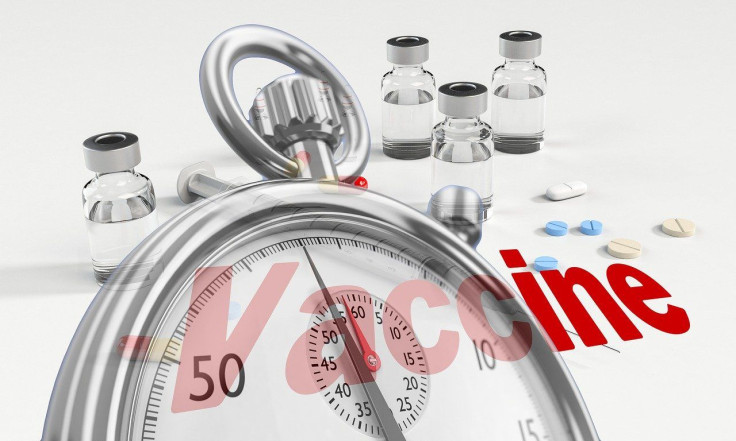Coronavirus Vaccine Race: Hundreds In UK To Get Experimental COVID-19 Vaccine, Scientist Says
KEY POINTS
- Human trials for coronavirus vaccines have started in the U.S., Brazil and U.K.
- U.K. scientists will start testing the vaccine on hundreds of people soon
- Some of the volunteers for the trial are 75-year-olds
Hundreds of people in the U.K. will receive an experimental COVID-19 vaccine in what scientists say is an early trial after the drug was successfully put through a smaller early trial without any safety problems.
Professor Dr. Robin Shattok of the Imperial College London said in an interview to The Associated Press that he and his colleagues recently concluded the gradual and hard process of subjecting the vaccine to a test, which involves the administration of low doses to preliminary participants.
He said they are now ready to expand the test of the Imperial vaccine to around 300 volunteers, including some that are 75 years old. “It's well-tolerated. There aren't any side effects,” Dr. Shattok told AP, adding that the tests are all part of the preliminary stage. The professor, who leads the research on coronavirus vaccine at Imperial, hoped to gather enough safety data so he could begin inoculating thousands of people in October, a US News & World Report revealed.
Shattock admitted it would be difficult to determe whether or not the vaccine works due to the drop in coronavirus infections in the U.K. They are also considering testing their vaccine elsewhere. “We’re looking very carefully at the pandemic, at the numbers where the hot spots are and talking to collaborators that have the facilities to do these kinds of studies,” he told AP in the interview.

The vaccine developed by Imperial scientists utilizes synthetic genetic code strands based on SARS-CoV-2, the virus that causes COVID-19. Once delivered to the body, the vaccine instructs the cells of the body to replicate the spiky protein found on the coronavirus. The body then mounts an immune response that would allow it to fight off any COVID-19 infection in the future.
The largest coronavirus vaccine study in the world commenced recently in the U.S., with the first of 30,000 participants getting inoculated with a vaccine developed through the joint effort of pharmaceutials company Moderna and the U.S. National Institutes of Health.
Chinese-made trial vaccines and those developed by Oxford University scientists in the U.K. also started smaller final-stage trials in Brazil and other countries hit hard by the pandemic earlier this month. These test drugs were based on other vaccine technologies.
The World Health Organization (WHO) has said COVID-19 needs multiple vaccine approaches, noting the typical rate of success for vaccine development is only around 10%. Shattock revealed there are many coronavirus vaccines going through clinical trials and said that some of them, at least, will be effective. “We have 20 vaccines in clinical trials, (so) we can be pretty confident that at least two of those will work,” he said, adding that the efficacy of the vaccine will depend on the strength of the body's immune response to it.
Shattock told AP he is optimistic the vaccine that his team developed will work, but they must first wait for the scientific data that they will gather from the trial. “I'm just going to hold my breath and wait to see,” he concluded.
© Copyright IBTimes 2024. All rights reserved.





















